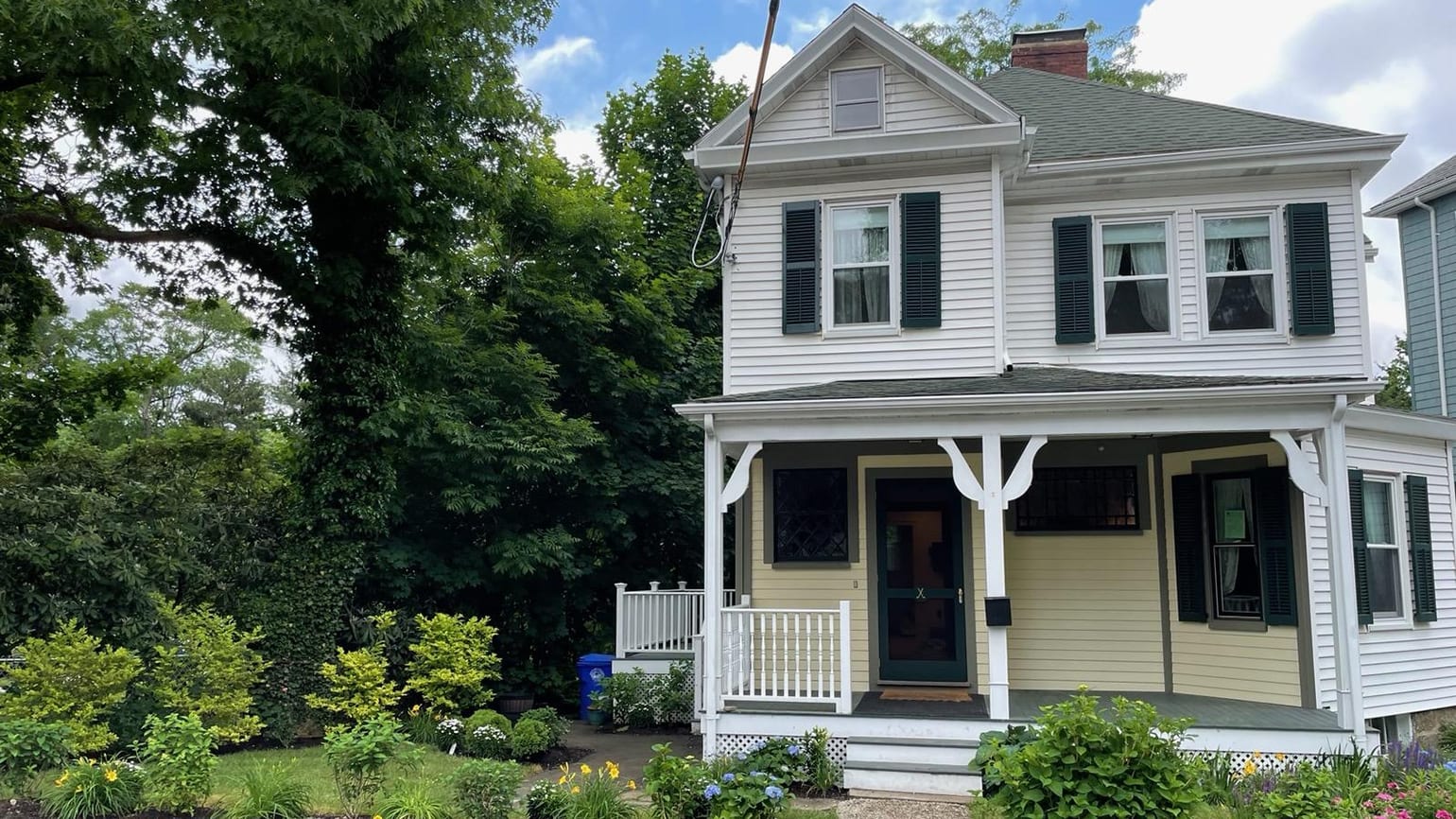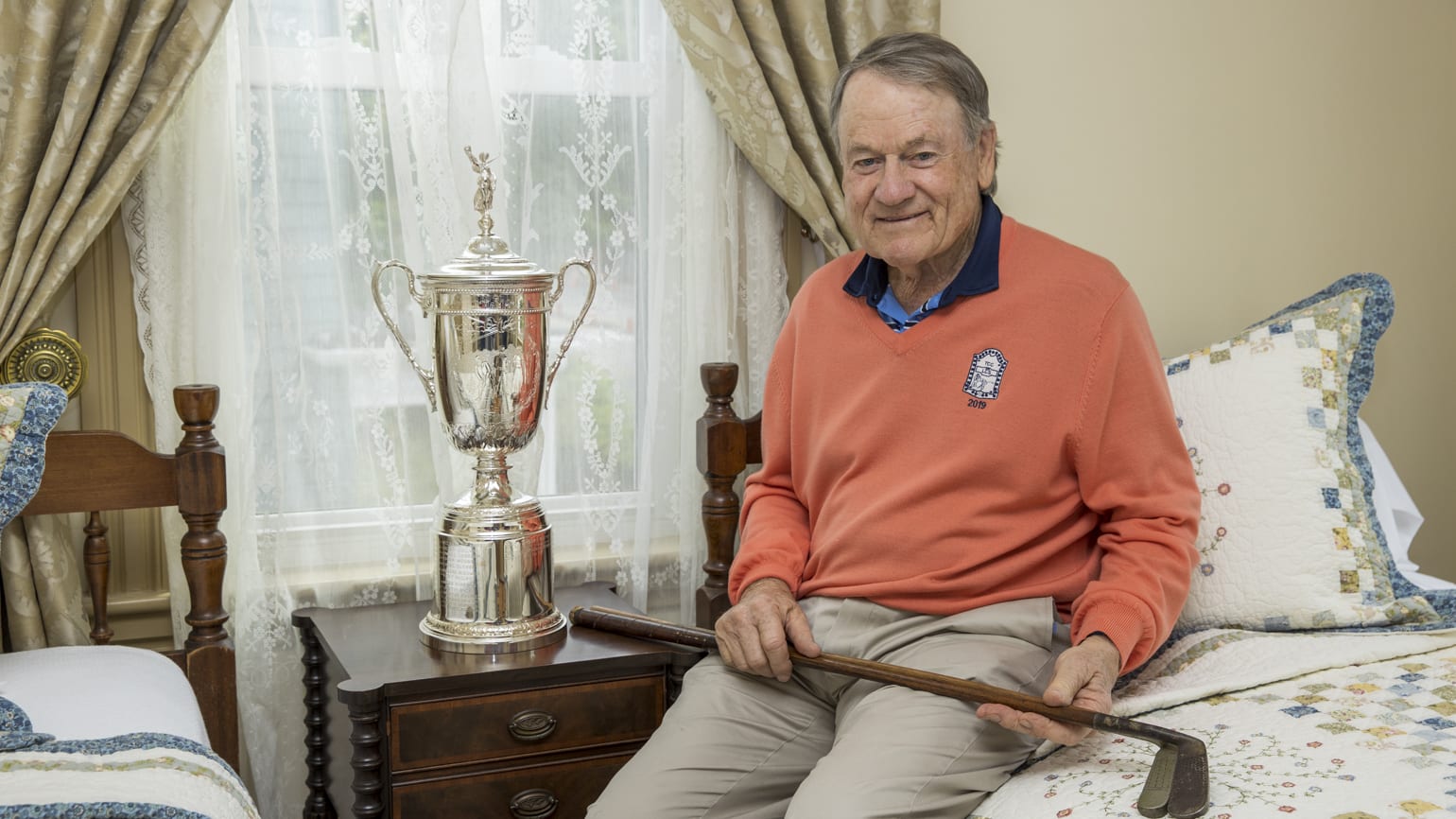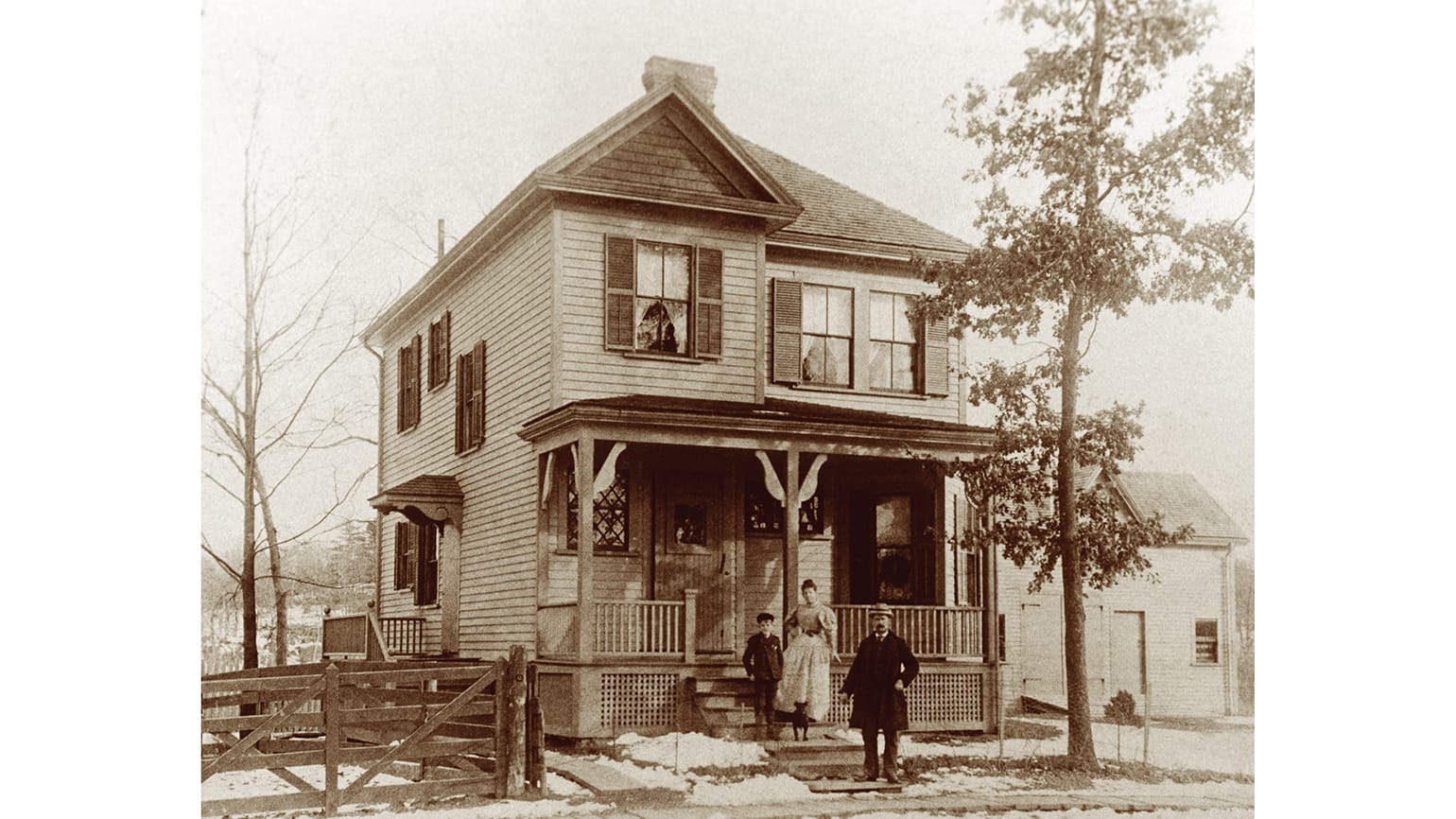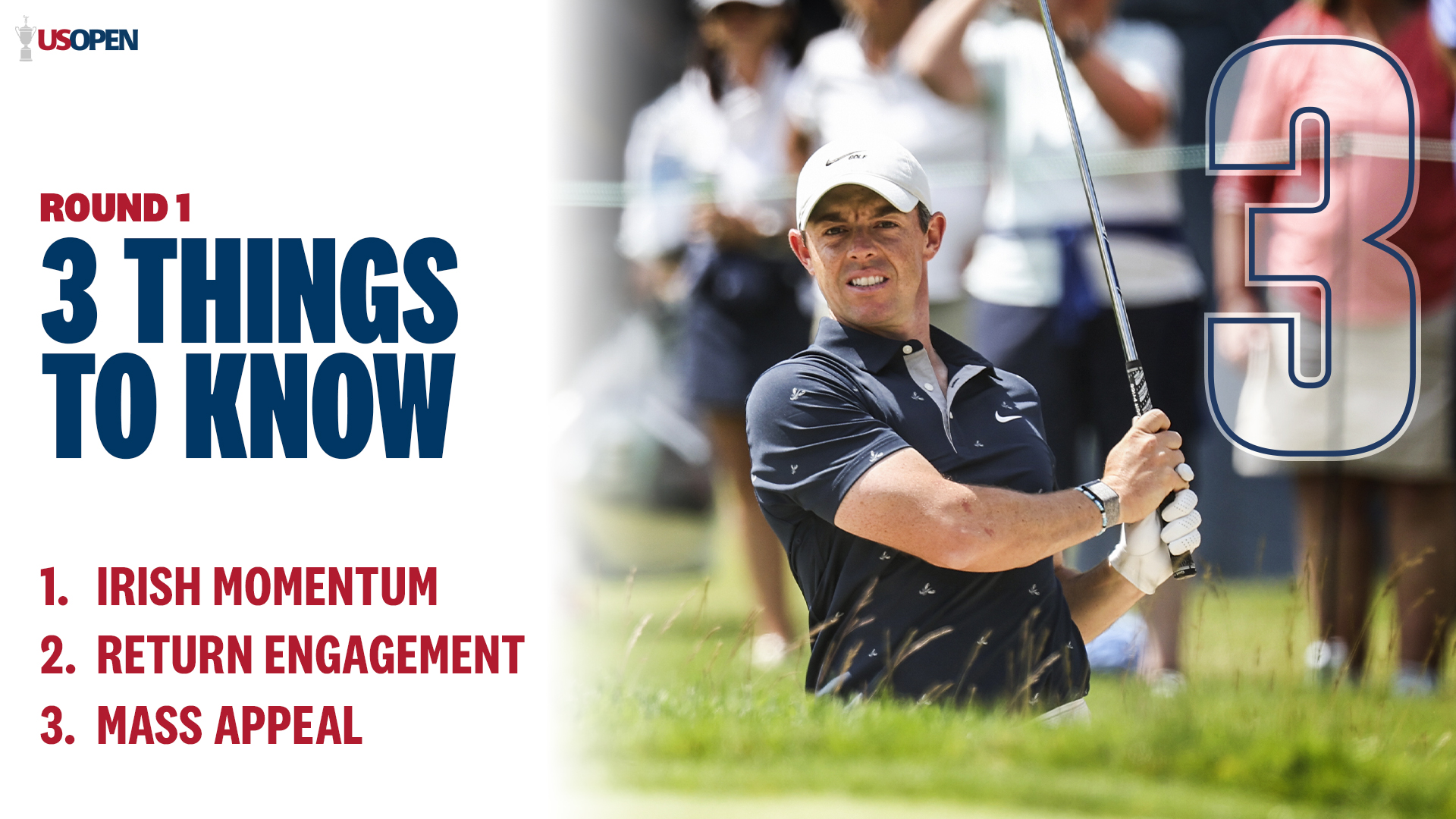Legacy of Historic Ouimet House on More Solid Footing
Gil Hanse recently completed a restoration of The Country Club, but one course he didn’t have a chance to restore was across the road – a three-hole layout with tomato cans for holes that Francis Ouimet and his older brother, Wilfred, laid out next to their house on Clyde Street.
That house – No. 246 Clyde Street – is where Francis Ouimet lived starting at age 4. It’s also where he woke up in his second-floor bedroom on the morning of Sept. 20, 1913, made the short walk and won the U.S. Open Championship at age 20, against all odds as an amateur of meager means, changing the tide of golf history.
It’s a modest house on a small lot, and today from Ouimet’s bedroom window, it’s not as easy to see the adjacent 17th hole of the golf course, which played a pivotal role in his stunning victory over British champions Harry Vardon and Ted Ray. When Tom Hynes moved into the neighborhood in 1987 and became a member at The Country Club, he grew concerned about the future legacy of the property.
“I took to the game around that same time,” said Hynes, the nephew of John B. Hynes, a three-term Boston mayor for whom the city’s Back Bay convention center is named. “I knew of Francis Ouimet through the scholarship fund [that bears his name], and I thought, this house should be part of golf.”
Hynes got to know the owners of the house, Jerome and Dedie Wieler, who had bought it from Ouimet’s sister’s descendants in the 1980s, and Hynes became something of a pest.
“The Wielers would walk their dog past my house every day,” Hynes recalled. “One day I said to them, ‘You own Number 246. When you’re ready to sell, I’m your buyer.’”
When the stunned couple told Hynes that they had no plans to sell, he replied, “I know that, but someday you will. Whether it’s five years, 10 years, 20 years from now, I’m your buyer.” And he reminded them every so often of his interest.
His persistence paid off in November 2019, when Jerome Wieler told him that they were getting ready to sell. The couple didn’t want it to go on the market and have people “tramping through the house,” according to Hynes. A price was settled on, they made a handshake agreement and the sale went through in March 2020.
Hynes, who is a co-chairman of the Boston office of Colliers International, a commercial real estate firm, created an LLC and began raising funds to finance the sale as well as needed improvements. After the property served as housing for TCC employees during the 2021 season, the club turned its focus to hosting the upcoming U.S. Open, and Hynes pivoted his efforts to restoring the home’s 1913 era ambiance – with modern conveniences, and an ambitious goal of completing the effort by this week’s championship.
Hynes would like the house to eventually be turned over to The Country Club for posterity. In the meantime, club president Lyman Bullard said in a statement, “The Ouimet House certainly is an important part of golf history. As The Country Club has yet to take possession of the house, we’re still working to determine its primary use and any other access.”
C.H. Newton Builders of Falmouth, Mass., is spearheading the restoration, which along with adding modern conveniences and making it ADA-complaint, includes refinishing floors, staircases, and the fireplace mantel. With Hynes’ blessing, the company furnished the home with several pieces from the Katharine Lee Bates House in Falmouth – the home of the college professor who wrote “America the Beautiful” – that was sold back in 2013. C.H. Newton placed some of its century-old furniture in storage when the new owners opted to update it, and the pieces turned out to be a perfect match for the Ouimet house.
Another nice touch is the period telephone that was installed in the kitchen with the aid of a TCC member with long ties to New England Telephone. Visitors can pick up the phone and hear a recording of Ouimet discussing The Country Club in 1963, a half-century after his singular triumph.
One day this spring, a worker was surprised to find a golf club come tumbling out of the eaves as he removed old insulation in the attic. In the end, two golf clubs, a toy bow and arrow, a painted coconut and a Morse code device were discovered. They are thought to have been toys of the Ouimet children several decades ago.
The Clyde Street residence is important, not just for Ouimet’s 1913 accomplishment and its resounding impact on interest in golf among Americans of all economic backgrounds, but for his personal legacy. He went on to win two U.S. Amateur titles a record 17 years apart (1914, 1931), served as USA Walker Cup captain a record six times, and in 1951, became the first American-born captain of The R&A in St. Andrews, Scotland. Those roles – as well as receiving the first Bob Jones Award, the USGA’s highest honor, in 1955 – serve to highlight not just Ouimet’s prowess, but his character and his humility. As golf writer Herbert Warren Wind once put it, “He was the great boy who became a great man.”
Ouimet’s greatest benefaction is his eponymous scholarship fund. When asked to help establish it in 1949, Ouimet didn’t want his name associated with it, but others insisted it was paramount to the fund’s success. It has gone on to award more than $43 million to more than 6,300 students over the years, and also provided a full-circle moment in the effort to preserve 246 Clyde Street.
“When I began seeking partners in the LLC, some said no, and others understood the connection and the legacy,” said Hynes. “One relatively new member at The Country Club asked if he could help. He contributed $25,000 and asked if he could do more. I said, well, we need a new heating system, and he helped with that. I said, ‘Wait, what’s the hook for you?’ The member said, ‘I’ve been fortunate and made a fair amount of money, and I would not have gone to college but for Francis Ouimet.’”
“So it’s very simple,” said Hynes. “It’s payback.”
Ron Driscoll is the senior manager of content for the USGA. Email him at rdriscoll@usga.org.


















